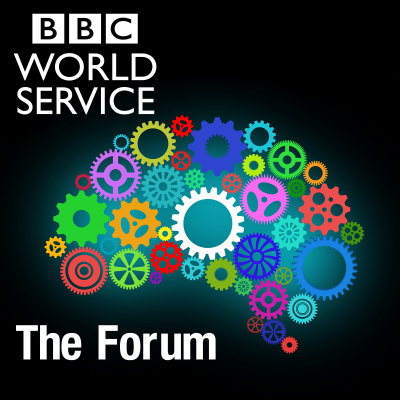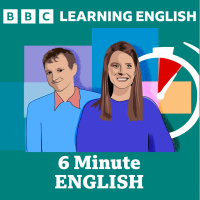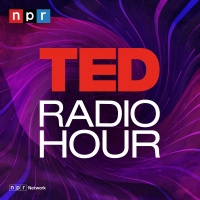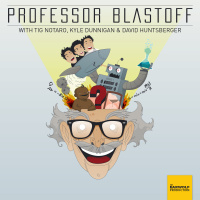Sinopse
A world of ideas
Episódios
-
The Little Prince: Lessons from an aviator’s life
10/02/2018 Duração: 40min‘It is only with the heart that one can see clearly; what is essential is invisible to the eye.’ Words of advice from a wily desert fox to a little boy who fell to Earth from an asteroid. That quote, by the French author and pilot Antoine Saint-Exupery, is one of the most memorable passages from The Little Prince, a slim volume that is one of the most frequently translated books of all time and has achieved this in just 75 years since its first publication. But who was Saint-Exupery? How did he come to write The Little Prince? And what else do we know about this adventurer and romantic who risked his life as a pilot many times and captivated the world with his writing?Bridget Kendall is joined by Olivier d'Agay, great-nephew of the writer and Director of the Antoine de Saint-Exupery Estate and Youth Foundation, Stacy Schiff, Pulitzer-prize winning author of an acclaimed biography of Saint-Exupery, and Bernard Chabbert, pilot and historian of French aviation.Antoine de Saint-Exupery (Photo by Hulton Archive/G
-
Chinua Achebe: Rewriting the African story
03/02/2018 Duração: 39minThe Nigerian writer Chinua Achebe is regarded as a giant of world literature. Best known as the author of the ground-breaking novel Things Fall Apart, he was also acclaimed for his works of non-fiction, poetry and his books for children. Raised and educated when his country was still under British colonial rule, Achebe witnessed great change, experiencing both the dawn of an independent Nigeria and the devastation of civil war. He is a writer famed for depicting, in English, the traditions of Igbo society in south-eastern Nigeria, and for engaging with subjects such as conflict, corruption and colonialism. In this programme, Rajan Datar and guests reflect on the life and legacy of this academic, author and advocate of African fiction. Featuring scholars Louisa Egbunike, Ernest Emenyonu and Terri Ochiagha.Photo: Chinua Achebe (Getty Images)
-
Boudica: Warrior queen
29/01/2018 Duração: 39minBoudica, also known as Boadicea, was a member of Iron Age aristocracy in Roman-occupied England, and her husband was the ruler of the Iceni people. When he died in around 60AD, Boudica, driven by Roman brutality, led a rebellion against the Roman army and marched on London. It was a ferocious attack that nearly drove the Romans out of Britain before Boudica was finally defeated. Today, she is an iconic and sometimes controversial figure.To explore Boudica, Bridget Kendall is joined by Professors Richard Hingley and Miranda Aldhouse-Green and Dr Jane Webster.Photo: Queen Boudica of the Iceni (Photo by Hulton Archive/Getty Images)
-
The alphabet of chemistry
20/01/2018 Duração: 39minThe Russian chemist Dmitri Mendeleev attempted nothing less than to pull apart the fabric of reality and expose the hidden patterns that lie beneath everything in existence, from shoes and ships and sealing wax to cabbages and kings. The result was something known to almost everyone who has ever been to school: the Periodic Table of the elements. But why this particular arrangement? And why is it still the foundation of chemistry?Quentin Cooper is joined by Hugh Aldersey-Williams, who since he was a teenager has collected samples of elements and has drawn on his samples and knowledge to write Periodic Tales: The Curious Lives of the Elements; Michael Gordin, Professor of History at Princeton University and the author of A Well-Ordered Thing: Dmitri Mendeleev and the Shadow of the Periodic Table; Ann Robinson, Historian at the University of Massachusetts studying the development of the periodic table; And Eugene Babaev, Professor of Chemistry at Moscow State University who maintains both Russian and English
-
Kubla Khan: A vision in a dream
13/01/2018 Duração: 39min“In Xanadu did Kubla Khan a stately pleasure dome decree … “ - Kubla Khan by Samuel Taylor Coleridge is one of the most famous poems in the English Language. But it is also one of the strangest. It was composed during an opium dream, it remains unfinished and according to one theory, was implicated in a war in South Africa. And what is its relation to the real life Kublai Khan, the 13th century Mongol emperor who conquered China? Joining Rajan Datar to discuss this mysterious poem is Coleridge’s award winning biographer Richard Holmes, the poet and senior lecturer in English Dr Peter Anderson from Cape Town University in South Africa, Professor Samantha Harvey from Boise State University in the US, and the Chinese historian Professor Kent Deng from the London School of Economics.(Photo: Royal Pavilion in the Phraya Nakhon Cave, Thailand. Credit: Mazzzur/GettyImages)
-
The story of Evita
06/01/2018 Duração: 41minEva Peron rose from a childhood of poverty to become one of the most powerful figures in Latin America. An illegitimate small town girl, she smashed class and gender barriers to become Argentina’s controversial First Lady. Loved and loathed, Rajan Datar discusses her life, work and remarkable afterlife with biographer Jill Hedges, historian Ranaan Rein, and cultural theorist Claudia Soria.Photo: Eva Peron in 1951 (Keystone/Getty Images)
-
Flamenco: Darkness and light
30/12/2017 Duração: 38minFlamenco is easily recognised across the world thanks to certain stereotypes, namely spotty dresses, shirt-tearing and lots of foot stamping. The reality however is far more nuanced, and this extraordinarily complex music and dance form can take many years – if not a lifetime – to master. For those steeped in its traditions, they describe it as a way of life. With the help of musical examples, Rajan Datar and guests explore how flamenco works, and discuss how it’s grown from its origins in the marginalised communities of southern Spain to become a commercial success the world over. Joining Rajan are flamenco aficionado and guitarist Brook Zern, dancer María Bermúdez from flamenco’s heartland in Jerez de la Frontera and Dr Matthew Machin-Autenrieth from the University of Cambridge in the UK.Photo: Flamenco dancing (Getty Images)
-
Sankara: Africa’s Revolutionary President
23/12/2017 Duração: 40minThomas Sankara is the revolutionary who became the first president of Burkina Faso in West Africa, and gave the country its name, meaning 'the land of upright people'. In his short time as leader of Burkina Faso, Sankara instituted sweeping reforms to make the country more self-sufficient and society more equal. For some Sankara was a hero, for others, he was a ruthless autocrat. This year marks 30 years after his mysterious -and as yet unsolved- assassination, but why do memories of him still haunt Africa to this day? Joining Bridget Kendall to discuss Thomas Sankara, are Dr Amber Murrey-Ndewa from the American University in Cairo, Lamine Konkobo BBC Afrique journalist from Burkina Faso, and Aziz Fall, Professor of International Studies in Canada and campaigner for justice on behalf of the Sankara family. Photo: Thomas Sankara at a press conference in Paris, 1986. (Getty Images)
-
Cotton: a Yarn with a Twist
16/12/2017 Duração: 39minIt is a fibre and a fabric that is part of many people's daily lives, it grows wild on at least three continents, it has been woven into cloth and traded all over the world for thousands of years. And when machines made possible the mass production of cotton, its story became entwined with the history of human slavery: making fortunes for a few, and condemning many to a life of misery. So what are the milestones in the history of cotton? And why has it always proved such a popular clothing material across the centuries and across the world?Bridget Kendall is joined by four textile historians to trace cotton's origins and its evolution into one of the world's most important global commodities: Sven Beckert, Professor of History at Harvard, Prasannan Parthasarathi, Professor of History at Boston College, Giorgio Riello, Professor of Global History and Culture at the University of Warwick and the President of the Textile Society Mary Schoeser.Photo: Cotton yarn (Getty Images)
-
Life Support: The Story of the Red Cross
11/12/2017 Duração: 39minThe International Committee of the Red Cross (ICRC) was formed in 1863 and its objectives have been to ensure protection and assistance for victims of armed conflict ever since.It's a story about the often challenging and sometimes controversial development of global humanitarian intervention, the Geneva Conventions and the Red Cross and Red Crescent Movement.Bridget Kendall and guests Dr Hugo Slim, Professor Andrew Thompson, Caroline Morehead and Syrian Canadian aid worker Layal Horanieh will explore the story of the ICRC and the complex negotiations required to operate in conflicted parts of the World.Photo: An aircraft of the International Committee of the Red Cross (AFP/Getty Images)
-
Stanislavsky: Founder of modern acting
02/12/2017 Duração: 39minIt was at the Moscow Art Theatre from the 1890’s onwards that Stanislavsky developed an innovative acting system that demanded actors really inhabit the role they are playing. This then inspired Method acting, which originated in the United States, and whose disciples range from Marlon Brando to Marilyn Monroe to the majority of big stars around the world today - some of whom have taken the system to an alarming extreme. This programme explores Stanislavsky's life and legacy, and also asks if his work has a role outside the theatre. Joining Bridget Kendall are Maria Shevtsova, Professor of Drama at Goldsmiths University of London, the Russian theatre historian Dr Arkady Ostrovsky, and the actor and director Bella Merlin.Photo: Anton Chekhov, in the centre of the picture, reading his play 'The Seagull' with theatre director Stanislavsky on Chekhov's right. (Hulton Archive/Getty Images)
-
Nikola Tesla’s electric dreams
25/11/2017 Duração: 39minThe extraordinary life and prophetic inventions of the Serbian-American engineer Nikola Tesla. Bridget Kendall and guests discuss not just Tesla's key contributions to the design of modern electrical appliances and systems but also his dream of a worldwide system of free wireless electricity, his ambitious scheme to build huge towers to make it happen and why in 1917 his plans and the first tower at Wardenclyffe near New York City came crashing down.Bridget is joined by Jasmina Vujic, Professor of Nuclear Engineering at Berkeley, University of California, and a Vice President of the Tesla Memorial Society of New York; Jane Alcorn, the President of the Tesla Science Center at Wardenclyffe; and Michael Krause, a historian, writer and director of the documentary All About Tesla.Photo: A Tesla Coil in action. The man in the photo is wearing a specially designed ferroalloy metal suit which keeps him safe while the high voltage crackles from him.(Getty Images)
-
Adam Smith: Father of Capitalism
20/11/2017 Duração: 39minAdam Smith, a moral philosopher and economist, was born in Scotland, the son of a customs officer. In 1776 he published a book called 'An Inquiry into the Nature and Causes of the Wealth of Nations’. Smith basically argued against the over regulation of commerce and said if people were set free to better themselves, it would produce economic prosperity for all. To discuss his work and legacy are Emeritus Professor of Philosophy and Intellectual History Vivienne Brown, the UK Labour Party peer and economist Lord Meghnad Jagdishchandra Desai, Professor of History Fania Oz-Salzberger and Emeritus Professor of Political Theory Christopher Berry.Photo: An illustration of Adam Smith, circa 1765. (Hulton Archive/Getty Images)
-
The First Skyscrapers
13/11/2017 Duração: 39minFrom Chicago to Shanghai, Kuala Lumpur to Dubai, the towering modern skyscraper has become a global icon. Touching the clouds worldwide and shaping our cities’ skylines, these bold structures have long captured the imagination and stirred debate. But where did the story start?In this programme, Bridget Kendall and guests look to America to explore the foundations of some of the world’s very first skyscrapers. Discussing cities such as Chicago and New York, and landmarks such as The Empire State and Seagram buildings, they discuss the factors that prompted such places and the people who built them to look to the skies. Plus, they ask what these early towers share with the dizzying structures that overshadow them today.With expert guests Carol Willis, Thomas Leslie and Benjamin Flowers.Photo: A construction worker sits on a girder above the New York streets. (Helmut Kretz/Keystone/Getty Images)
-
Rain or shine? A short history of the weather forecast
06/11/2017 Duração: 39minHow did we get from not having any reliable way of predicting the weather just 150 years ago, to today's accurate, tailor-made forecasts for places as small as a village? Bridget Kendall and guests trace the history of meteorology, from its first steps as an aid to quicker trans-Atlantic shipping to the latest methods which can help anticipate weather events as short-lived as a tornado. Bridget is joined by Kristine Harper, a former US Navy forecaster and now a history professor at Florida State University; Peter Gibbs who started out as a meteorologist with the British Antarctic Survey and the UK's Met Office before becoming one of the best known weather forecasters on BBC radio and television; and Peter Moore, a writer and historian with a particular interest in weather discoveries of the 19th century.Photo: A hurricane is seen from the International Space Station. (Scott Kelly/NASA via Getty Images)
-
The Reformation: A World Divided
30/10/2017 Duração: 48minFive-hundred years ago, in a remote part of Germany, a little known friar called Martin Luther set in train a series of events that led to the permanent splintering of Western Christianity. It changed the political and social landscape in a way that still resonates today all over the world. The Forum comes from Trinity Hall, part of Cambridge University in the UK, with historian professor Ulinka Rublack, professor of English Literature Brian Cummings, professor of Theology Alec Ryrie and the Reverend Daniel Jeyaraj. The British actor Simon Russell Beale reads from Luther's writings and members of the Cambridge University Choir of Gonville and Caius College perform Lutheran hymns. (Photo: A Statue of Martin Luther in Eisenach, Germany. Credit: Getty Images)
-
Detroit: Migration Motors & Music
21/10/2017 Duração: 40minBridget Kendall and guests examine the story of Detroit. Founded in 1701 by a French man named Cadillac, this American city became famous in the twentieth century for its automobile industry, the music of Motown, and the great unrest seen on the city’s streets in the summer of 1967. In this programme, Bridget and guests discuss the city’s changing fortunes and its fascinating history, from the role played by some residents in the ‘Underground Railroad’ of the nineteenth century, to its recent experience of bankruptcy. Bridget is joined by Herb Boyd, Stephen Henderson, Thomas Sugrue and Anna Clark. Also featuring Tiya Miles and Carleton Gholz.(Image Credit: STAFF/AFP/Getty Images)
-
The Real Pirates of the Caribbean
14/10/2017 Duração: 39minThey are familiar figures in folklore and popular culture, swashbuckling across the silver screen, snarling on stage as pantomime villains or committing daring deeds in childhood literary classics. But who were the real life pirates of the Caribbean and how much of what we think we know about them is based on fact? Rajan Datar is joined by maritime historian David Cordingly, academic and author Margarette Lincoln and author Laura Sook Duncombe who has written about pirate women.Image:Black Beard Credit: Getty Images
-
Rumi: Sufi poet of love
09/10/2017 Duração: 39minFrom East to West, Rumi is one of the most universally respected poets of all time. A 13th Century Islamic scholar, his encounter with a wandering dervish transformed him into a globally celebrated mystic and poet of love who has crossed borders of time, faith, language and geography.Rajan Datar discusses his life, work and legacy with scholars Fatemeh Keshavarz and Omid Safi, and biographer Brad Gooch.(Photo: Pray Mount Nemrut, Commagene. Credit: Getty Images/tugbahasbal)
-
The story of the guitar
02/10/2017 Duração: 39minBridget Kendall and guests explore the history of the guitar which stretches back over several thousand years. From early instruments made of tortoise shells the guitar emerged as one of the great cultural crossover instruments, encompassing folk traditions around the world, classical music and spine-tingling rock riffs. With guitar master John Williams, composer and guitar expert Professor Stephen Goss, Turkish guitarist Cenk Erdogan and French guitar maker Celine Camerlynck.(Photo: Boy with home made guitar. Credit: Daniel Hayduk/AFP/Getty Images)









